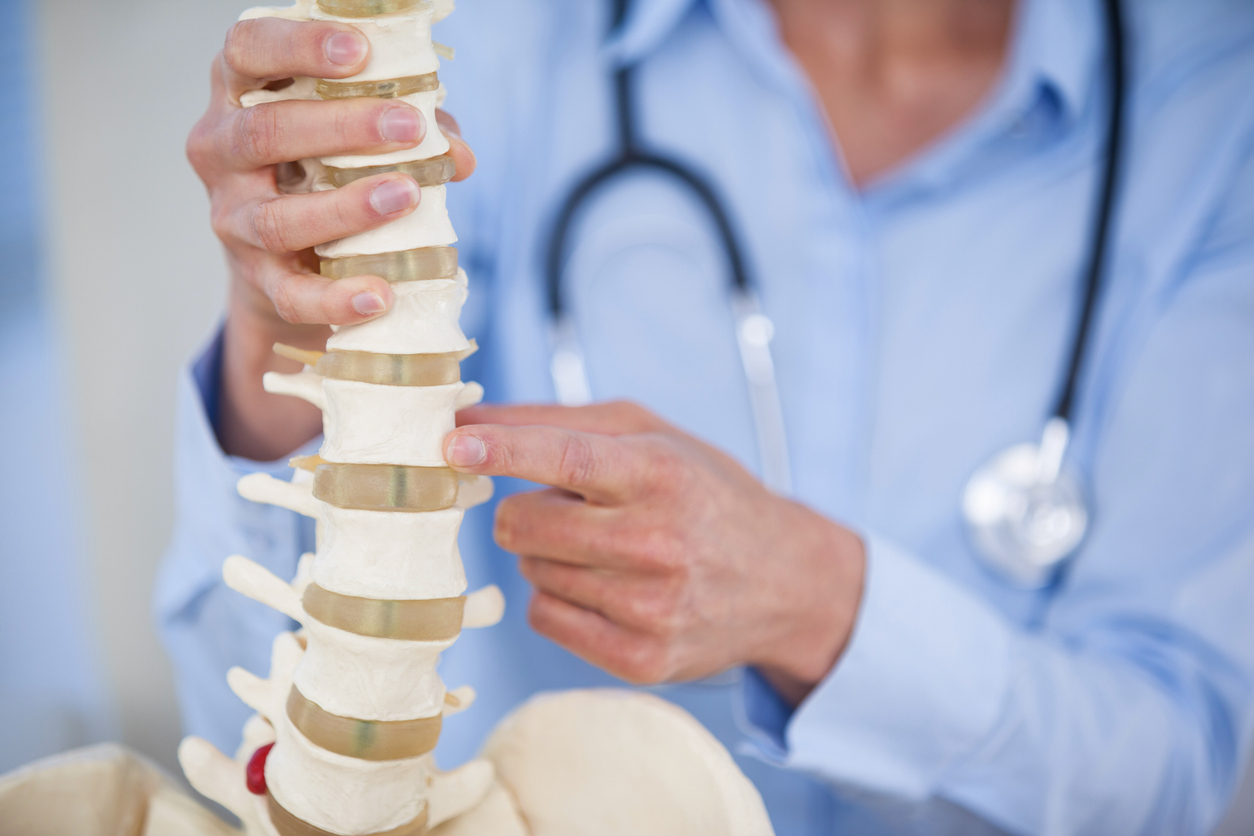Spinal Cord Injuries
A spinal cord injury is a traumatic event that may affect someone’s life and lifestyle. Treatments can’t reverse damage. But there are ways to adjust and cope.
We offer expert care for people affected by spinal cord injuries and those who care for them.
What Are Spinal Cord Injuries?
Nerve bundles that make up your spinal cord allow your brain and the rest of your body to communicate. For example, messages tell your lungs to take in air, your legs to move and your hand to get off a hot burner on the stove.
When any part of your spinal cord is damaged, messages like these may not get through. An injury may completely sever the spinal cord, or vertebrae that form your spinal canal may fracture and compress your spinal cord. In either case, these injuries may change your ability to move and function.
Types of Spinal Cord Injuries
There are two main types of spinal cord injuries:
- A complete spinal cord injury results in total loss of sensation and muscle control below the injury.
- An incomplete spinal cord injury means some function remains below the level of the injury.
When an injury occurs to the upper portion of the spine, in the neck region, someone may be unable to move both arms and both legs. When the spinal cord is injured in the lower back, a person’s legs may be paralyzed, but their arms may function normally.
Causes of Spinal Cord Injuries
Damage to the spinal cord may result from loss of blood supply, compression by a tumor or infection, or trauma. The most common causes of spinal cord injuries include:
- Diving into shallow water
- Falls
- Serious collisions during a sporting event
- Vehicle crashes
- Violence
Treatment of Spinal Cord Injuries
Currently, doctors have no treatments to reverse damage to the spinal cord. However, they can offer options to help address complications and stop further damage. And researchers and scientists continue to look for promising therapies.
If you or a loved one has experienced a spinal cord injury, our specialists will talk with you about the best treatment options given the location and extent of the injury. Together, you decide how to proceed.
Some options include:
- Assistive devices such as wheelchairs, walkers or leg braces
- Physical and occupational therapy
- Rehabilitation
- Steroid medication
- Surgery
- Traction
Experimental treatments may help, too. For example, some therapies may help stop cell death, control inflammation or promote nerve repair or regeneration. We work together to find the treatment or treatments right for you.
Caring for a Loved One With a Spinal Cord Injury
Caring for someone with a spinal cord injury isn’t easy. At times, it can feel overwhelming. But caregivers are invaluable to those with these injuries. Following are some tips that may benefit you and the person you care for:
We’re Right Here to Help
With unmatched experience in diagnosing and treating spine pain, your condition will be carefully evaluated by the team of experts at the Spine Center as we work with you to develop a customized treatment plan. Highly skilled and caring providers, plus state-of-the-art technology and treatments, means you’re at the right place for exceptional patient care.
Affiliations with OrthoCincy Orthopaedics & Sports Medicine and Mayfield Brain & Spine ensure you receive the highest possible level of spine care.


